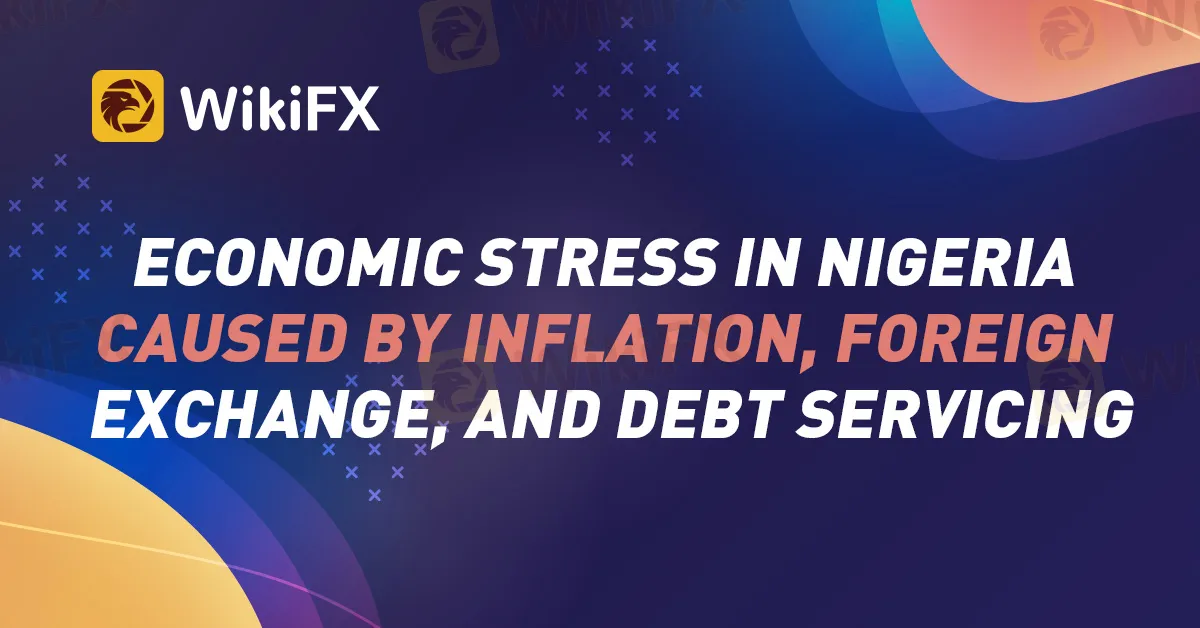Abstract:According to the Lagos Chamber of Commerce and Industry, the Nigerian economy is under severe stress as a result of increased inflationary pressure, foreign exchange difficulties, debt servicing, and insufficient tax collection.

According to the Lagos Chamber of Commerce and Industry, the Nigerian economy is under severe stress as a result of increased inflationary pressure, foreign exchange difficulties, debt servicing, and insufficient tax collection.
The Nigerian economy may enter stagflation, which would have a negative impact on production costs and slow growth in the medium term, according to the Lagos Chamber of Commerce and Industry (LCCI).
The report claimed that the economy of the nation had continued to face numerous obstacles, including inflation, weak revenue growth, deteriorating infrastructure, problems with foreign exchange, an unsupportable cost profile seen in debt servicing and subsidy payments, and ominous threats of insecurity.
In a statement titled “LCCI statement on Nigeria's economic growth performance,” signed by its Director-General, Dr. Chinyere Almona, the chamber warned that even though the economy made an impressive comeback from the COVID-19 pandemic-induced recession in 2020, if these problems weren't resolved, it might slide into stagflation.
The Gross Domestic Product growth rate of 3.4% in the second quarter of 2022 was much lower than the growth rate of 5.1% in the same quarter of 2021, according to LCCI.
“However, the economy has continued to struggle with various stumbling blocks like inflation, insufficient income generation, decrepit infrastructure, FX issues, an unsustainable cost profile evident in debt services and subsidy payments, and the formidable prospects of rising insecurity,” the statement continues.
“The Chamber is afraid that if we continue on this path, the economy may bleed away into a stagflation which will affect on production costs, job losses, an exacerbated currency crisis, and slowed growth in the medium term,”
Almona further pointed out that the oil industry had seen negative growth for nine consecutive quarters, Q2 2022 by -11.8 percent y/y after a more severe contraction of -26 percent y/y in Q1.
Since the government received almost 80% of its revenue from the oil industry, she encouraged more attention and resources on combating the threat of oil theft and pipeline destruction.
According to the head of LCCI, compared to other sectors that increased at rates exceeding 5%, the 1.2 percent agriculture and the three percent growth for manufacturing were relatively low.
This was also a sign of the dangers facing the industries that fuel the real estate market in Nigeria.
The statement went on to say that the problems in these two industries were what caused the alarming increase in the inflation rate.
Many more production operations may stop in the upcoming months due to the severe cost of debt servicing, subsidy payments, and rising insecurity.
The Lagos Chamber of Commerce urged the Federal Government to continue its focused interventions in a few key industries, like as manufacturing, export infrastructure, agriculture, and combating subsidy payments.
The 2023 budget estimates suggest there would not be a sizable investment for capital projects in 2023. We implore the government to stop oil theft in order to generate more, to borrow money from less expensive sources in order to lower the cost of debt servicing, and to move gasoline subsidies.










